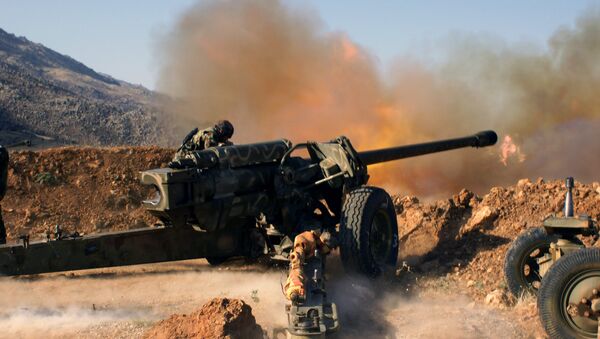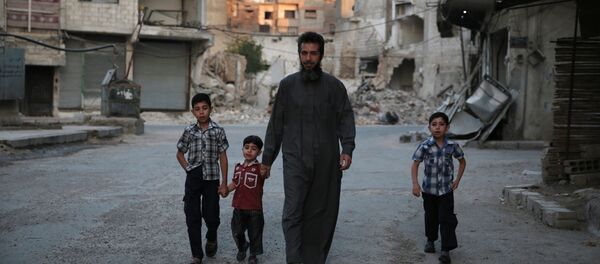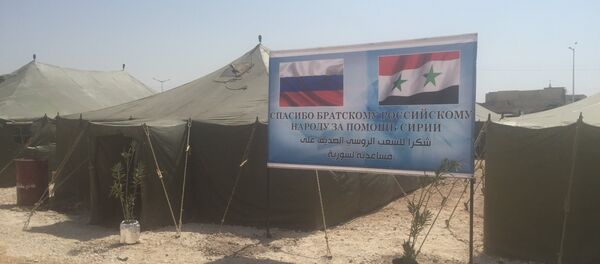Russia currently has no plans to participate in military operations on the territory of Syria or other countries in the region, Russian President Vladimir Putin said in an interview with Charlie Rose for the CBS and PBS channels on Sunday.
"Russia continues to help Syria by providing the Syrian Army with the information through air reconnaissance from the aircraft. Perhaps, at some point, Russia will realize a need for some special forces on the ground in order to help destroying certain targets," Dhuicq, a member of the Defense Commission at the French National Assembly, said.
Syria has been in the state of a civil war since 2011. Government forces have been fighting against opposition factions and numerous extremist insurgent groups, including Islamic State and the Nusra Front.
The United States does not believe that Syrian President Bashar Assad’s government is legitimate, and has been launching airstrikes against ISIL positions in Syria since 2014, as well as training opposition forces, within the framework of an international coalition.
Russia, on the other hand, considers the Assad regime to be legitimate, and has been supporting it militarily. Moscow has pointed out that the US-led coalition’s actions in Syria lack legitimacy because they are not coordinated with the Syrian government or the United Nations.
Last week, Russian Foreign Minister Sergei Lavrov confirmed that Russia was engaged in coordination efforts with Iraq, Syria, and Iran to more effectively combat ISIL forces in the Middle East.
Russian President Vladimir Putin stated in an interview with Charlie Rose for the US-based CBS and PBS channels that he has personally spoken with the heads of Turkey, Jordan and Saudi Arabia about the establishment of a coordination structure to counter ISIL, adding that the United States has been made aware of the developments.
"The establishment of a coordination structure to fight the ISIL is important for the region. For example, the main threat for Jordan is 1 million refugees from Syria and it is a factor of major destabilization. I am very preoccupied by the stability of Jordan. The same is true for another Syrian neighbor — Lebanon that is in a state of political turmoil while unable to elect a president," Nicolas Dhuicq, a member of the Defense commission at the National Assembly, observed.
Meanwhile, the King of Jordan said in his address to the UN General Assembly on Monday that the international community must support Jordan and Lebanon, which have both accepted millions of Syrian refugees.
According to Dhuicq, ISIL has created structures on territories under their control in Syria and Iraq that show a similarity to a state structure as the extremists receive salaries for their activities.
"The question is where does the money come from? It probably comes from Saudi Arabia and Qatar. The questions that Saudis need to ask themselves is if their creation is still under the control of its own masters," Dhuicq noted.
Both Arab states must watch closely the great potential of the work of the anti-ISIL coordination center, he added.
The information center will focus on collection, processing, summarizing and analyzing Middle East data in the context of the fight against ISIL. The program will make available relevant information to be rapidly distributed to Russian, Iranian, Iraqi and Syrian general staffs.




